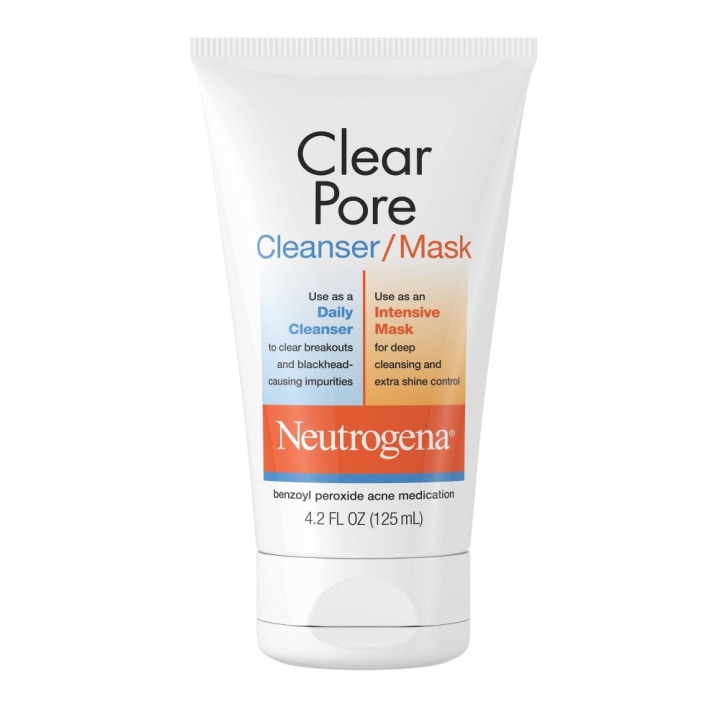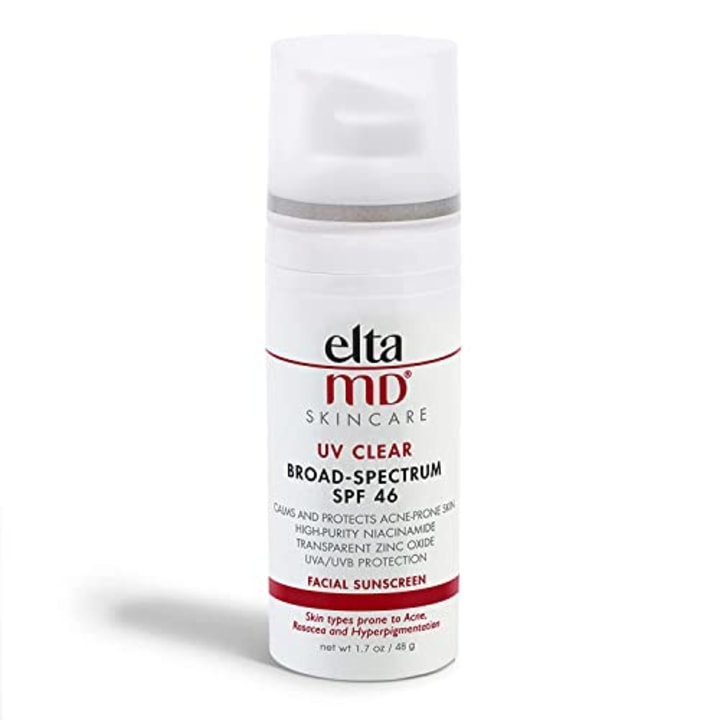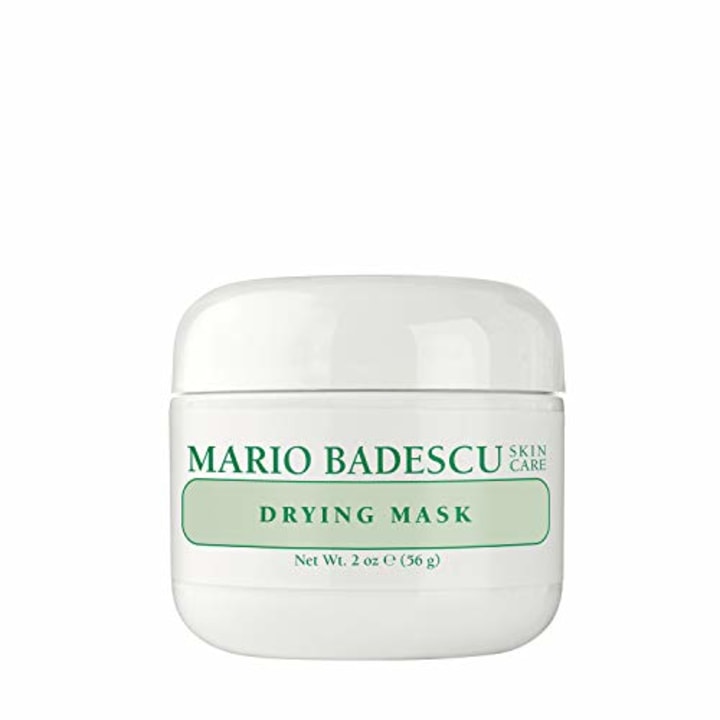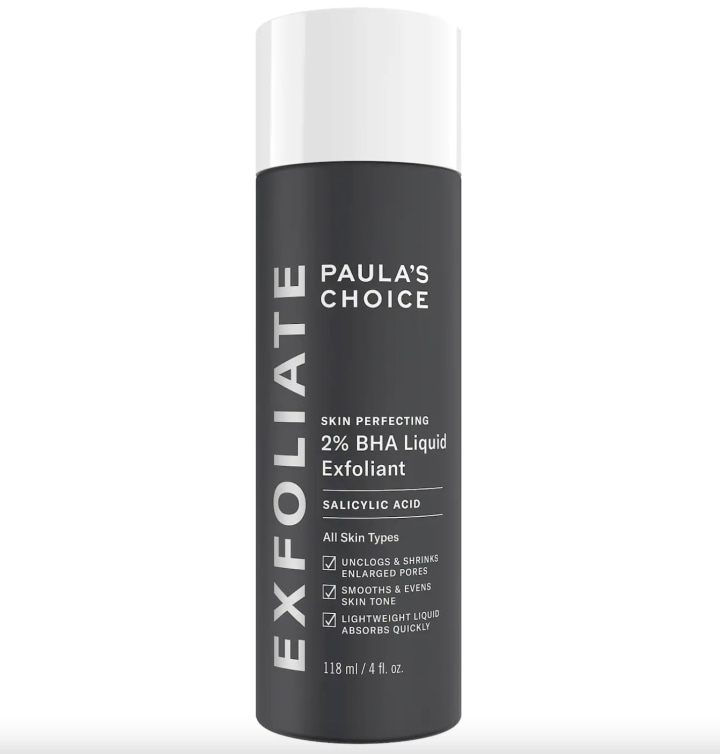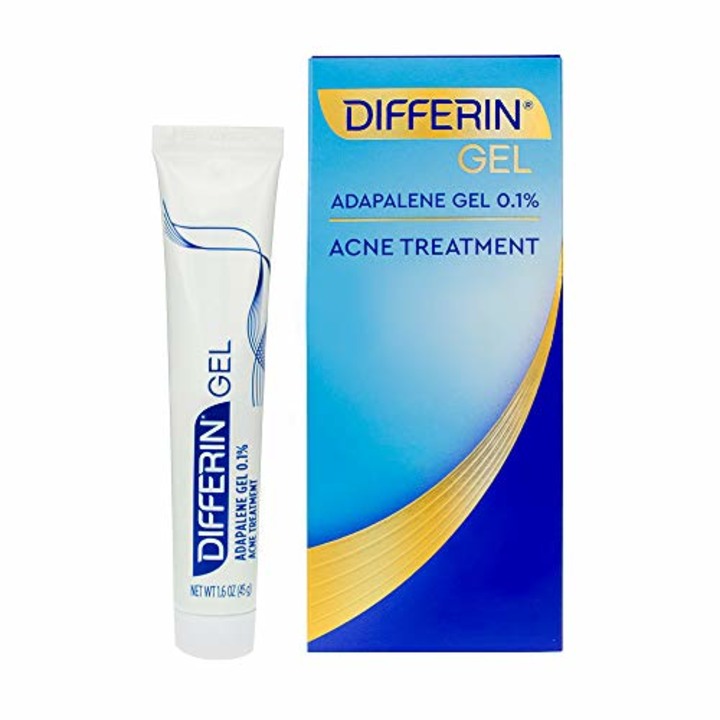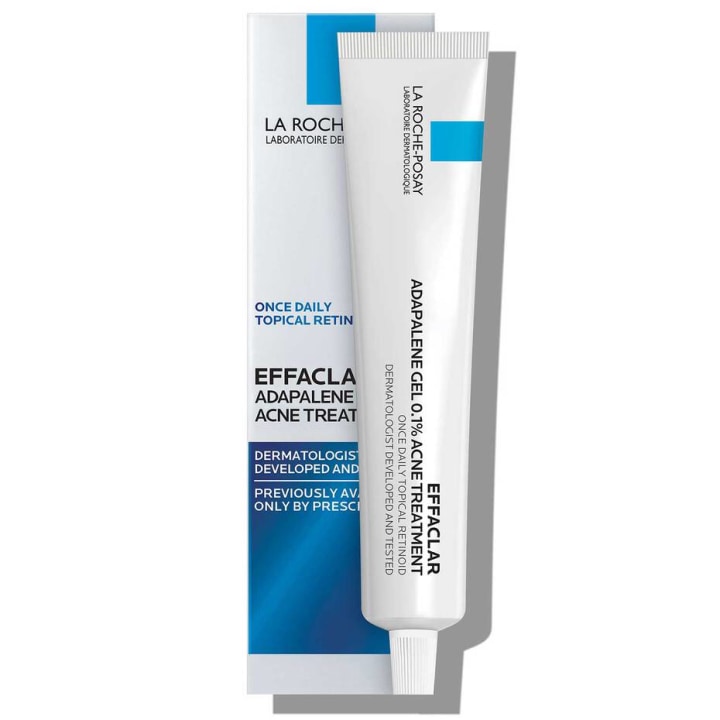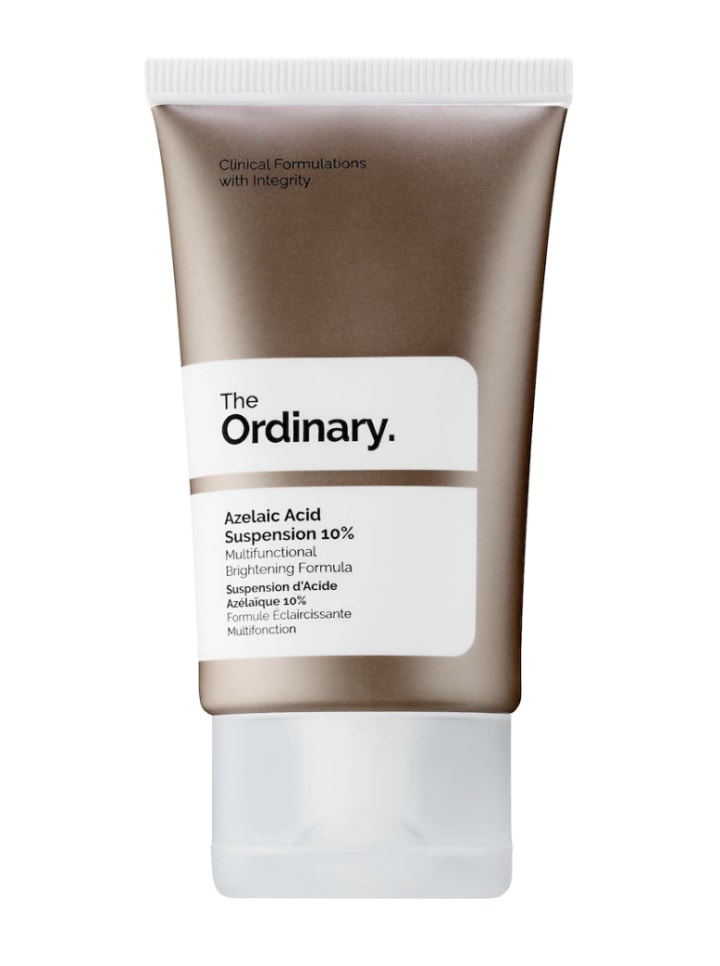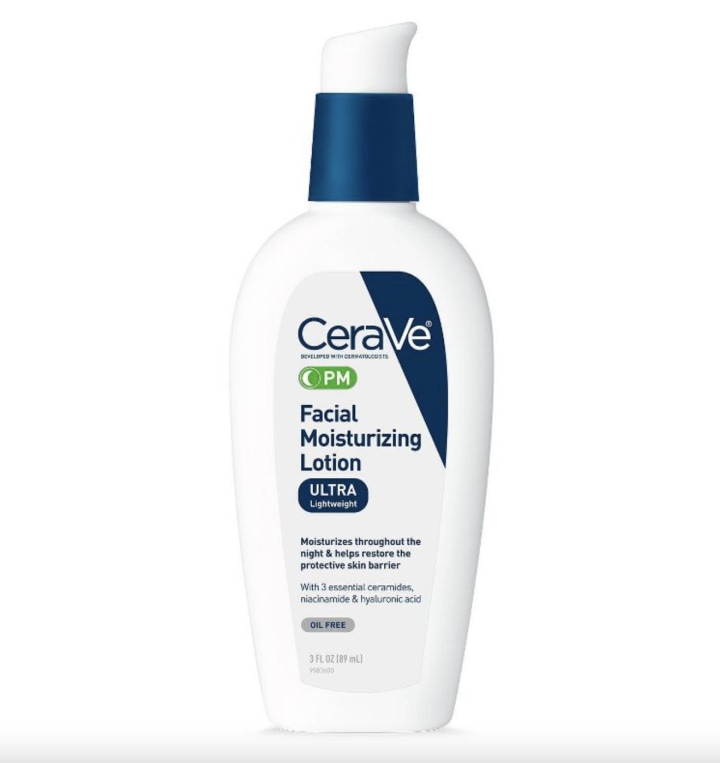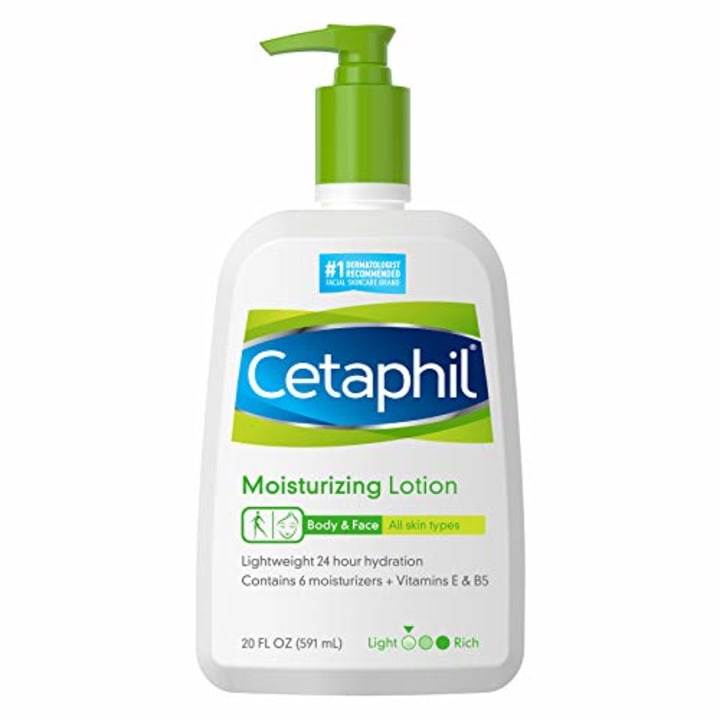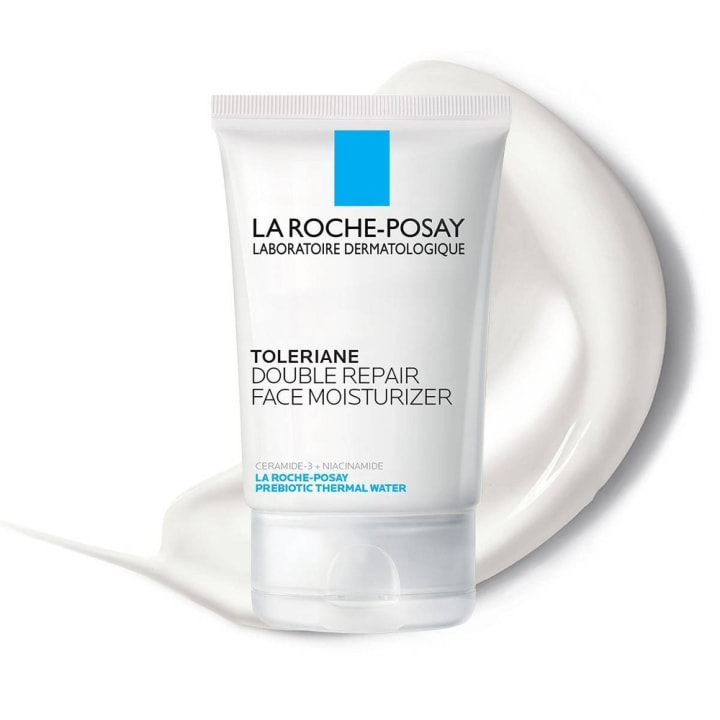Table of Contents
While we typically think of acne as a standard (and terribly annoying) part of our teenage years, the issue has become increasingly more common in adults. It’s an even more prevalent problem in the female population: Up to 22% of women in the U.S. suffer from adult acne compared to 3% of men, according to a 2014 study in The Journal of Clinical and Aesthetic Dermatology.
SKIP AHEAD Best products for acne-prone skin
Depending on the severity of your condition, controlling acne can be difficult — but it’s not impossible. We spoke to board-certified dermatologists about the skin care ingredients that can fight acne, inflammation and dark spots. We also compiled some of their recommendations for the best products to shop for acne-prone skin.
What are the best ingredients for acne-prone skin?
The dermatologists we spoke to highlighted four key ingredients to help fight acne: salicylic acid, benzoyl peroxide, adapalene and azelaic acid. These are available as prescriptions for more stubborn acne, but there are plenty of over-the-counter products that offer these ingredients at a lower dosage.
Other acne-fighting ingredients found in OTC products include alpha hydroxy acids (AHA) and beta hydroxy acids (BHA). These compounds can “help with clogged pores like blackheads and can cause the top layer of dead skin cells to shed,” according to Dr. Mary Stevenson, a board-certified dermatologist and associate professor at NYU Langone Health’s Department of Dermatology. However, experts agreed you should consult your dermatologist to see what works best for your skin and won’t cause irritation (or worsen your acne).
Salicylic acid
Salicylic acid is a BHA, which means it’s a chemical exfoliator. The compound “helps shed the top, dead layers of our skin and can help with inflammation,” said Stevenson. These products, typically in the form of a cream, wash or lotion, “unclog pores that are the cause of some acne lesions and help to remove excess oils,” according to Dr. Eileen Deignan, a board-certified dermatologist and chief of dermatology at Emerson Hospital. Dr. Tracy Evans, a board-certified dermatologist and medical director of Pacific Skin and Cosmetic Dermatology, recommended using salicylic acid every other day or a couple of times a week since it can have a drying effect, especially on sensitive skin.
Lipohydroxy acid (LHA) is a derivative of salicylic acid that works very similarly in terms of unclogging pores and exfoliating the skin. However, LHA is more gentle and less irritating, according to Dr. Emmy Graber, a board-certified dermatologist and president of The Dermatology Institute of Boston.
Benzoyl peroxide
Benzoyl peroxide helps inhibit the growth of the bacteria Propionibacterium acnes (P. acnes) on the skin, which is what typically causes the inflammation and lesions seen in acne. This ingredient can be especially useful for inflammatory acne, Evans noted.
A lot of benzoyl peroxide products contain 10% of the ingredient, Graber said, but she noted that higher strengths have never been proven to be better for acne. “Higher strengths only irritate the skin more, so you should look for a lower strength” especially if you’re just starting out, she advised. Evans also noted that the ingredient shouldn’t be used by people with sensitive skin or dermatological diseases like eczema or rosacea. Keep in mind that benzoyl peroxide can also bleach your clothes and towels.
Adapalene
Adapalene is a type of retinoid used to treat mild to moderate acne and blackheads. Adapalene is available in 0.1% and 0.3% strengths and it’s the first OTC retinoid treatment approved for acne — it works to regulate the turnover of cells lining the pores to reduce clogging, according to Deignan. Evans warned that adapalene can be very drying for the skin and should be used with an oil-free moisturizer and gentle cleanser.
Azelaic acid
Much like salicylic acid and adapalene, azelaic acid works to unclog pores. It’s more mild compared to salicylic acid and adapalene, so it may be a more suitable option if you have sensitive skin, according to Dr. Lindsey Bordone, a board-certified dermatologist and assistant professor of dermatology at Columbia University Medical Center. “It can also lighten the brown spots that are left behind from old acne marks, which we see most often in people who have darker skin tones,” added Graber. She noted you can get prescription-level azelaic acid at 15% and 20% strengths, but you can also find it in OTC products at a 10% strength.
Best products for acne-prone skin in 2022
The dermatologists we spoke to recommended looking for products with salicylic acid, benzoyl peroxide, adapalene and azelaic acid for acne-prone skin. Below, we highlighted a mix of face washes, moisturizers, sunscreens, spot treatments and face masks that feature these ingredients as well as other expert-recommended acne-fighting ingredients like niacinamide and zinc oxide. Experts recommended each of the following brands and products.
Neutrogena Oil-Free Salicylic Acid Acne Wash
Deignan recommended this salicylic acid cleanser from expert-favorite brand Neutrogena to clean out pores and calm acne. It features LHA, which Graber recommended as a more gentle acne solution. It’s suitable for most skin types since it’s free of oils, fragrances and parabens, according to the brand.
CeraVe Acne Foaming Cream Cleanser
CeraVe — a popular brand among our experts — is Deignan’s pick for a lower-strength benzoyl peroxide wash. It features a 4% benzoyl peroxide concentration to help clear acne, hyaluronic acid to help retain the skin’s natural moisture and niacinamide for a natural anti-inflammatory effect, according to Deignan.
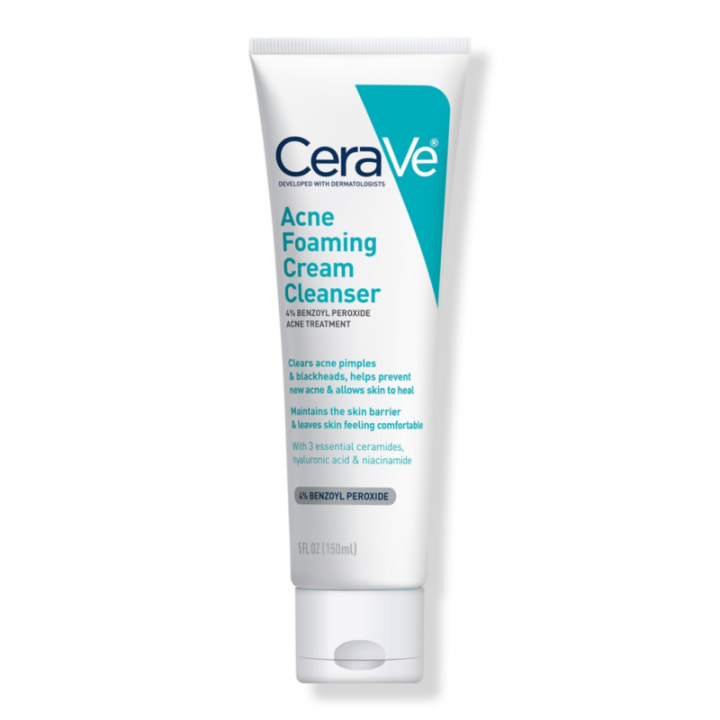
La Roche-Posay Effaclar Medicated Gel Acne Face Wash
This fragrance-free acne face wash from expert-favorite brand La Roche-Posay contains a 2% concentration of salicylic acid — Evans said the brand combined the ingredient with LHA to “balance the cleanser” and make it gentler on the skin. It also contains glycerin, which Stevenson told us is a type of AHA that hydrates and helps soothe the skin.
Because of its drying element, Evans said this face wash can be a good option for people with oily skin — for more sensitive skin types, she recommended the brand’s Toleriane Hydrating Gentle Cleanser since it’s less stripping, has niacinamide and “provides hydration along with cleansing the skin.”
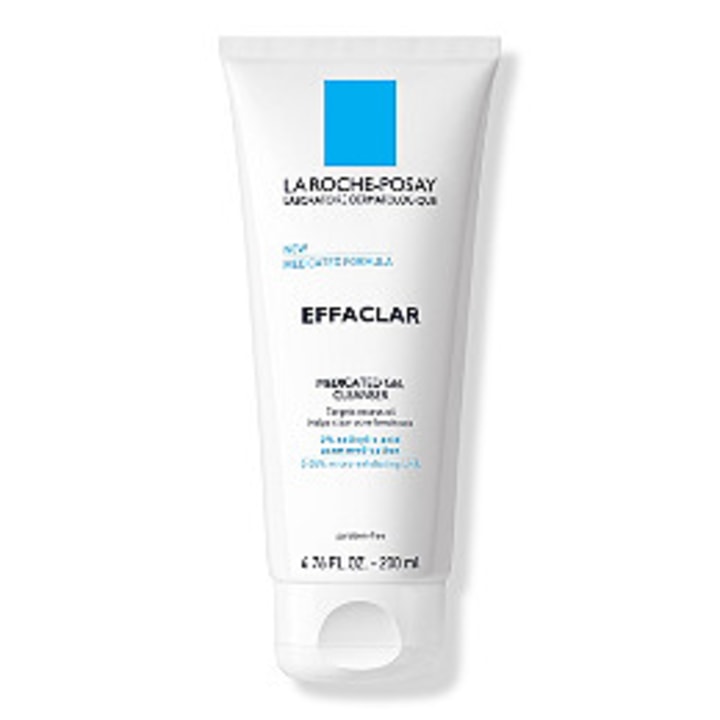
Neutrogena Clear Pore Face Mask
Graber recommended this product from Neutrogena, which contains 3.5% benzoyl peroxide. It can be used as a daily cleanser or weekly mask to kill bacteria and prevent future breakouts, according to the brand.
EltaMD UV Clear Sunscreen with SPF 46
The EltaMD UV Clear Sunscreen is a favorite of Deignan’s since it’s free of heavy moisturizers that could clog pores and contains the natural anti-inflammatory ingredient niacinamide. EltaMD’s mineral-based sunscreen offers SPF 46 and includes zinc oxide, which experts previously told us provides protection against the sun’s UVA and UVB rays while soothing the skin.
Mario Badescu Drying Mask
This face mask from Mario Badescu contains sulfur, “the oldest known ingredient to help with skin inflammation,” according to Graber. The combination of sulfur and zinc oxide in this mask draws out impurities and gets rid of excess oil, while calamine and cucumber can cool the skin and ensure you don’t feel irritated afterward, Mario Badescu says. You can apply it either two or three times a week — it can also be used as a spot treatment on stubborn breakouts, according to the brand.
Paula’s Choice Skin Perfecting 2% BHA Liquid Exfoliant
This highly rated liquid leave-on exfoliant from Paula’s Choice contains 2% salicylic acid to help remove dead skin cells and unclog pores. It also has green tea, which the brand says can help soothe irritated skin and improve visible signs of aging.
Differin Adapalene Gel 0.1% Acne Treatment
Dr. Caren Campbell, a California-based board-certified dermatologist, recommended this OTC retinoid in our guide to retinol. Experts told us that retinoids promote skin cell turnover and cure inflammation to deep clean pores and prevent new pimples from forming. After you cleanse, tone and moisturize, apply a thin layer of the gel treatment to the affected areas of the skin, the brand says.
La Roche-Posay Effaclar Adapalene Gel
Another adapalene gel recommended by Campbell, La Roche-Posay’s Effaclar Adapalene Gel also contains 0.1% adapalene to unclog pores and fight blackheads and whiteheads, the brand says. La Roche-Posay’s gel is also slightly gentler and more moisturizing than the Differin gel, according to people who have used both.
The Ordinary Azelaic Acid Serum
Graber said she usually recommends The Ordinary Azelaic Acid Serum to her patients since it can help improve both blemishes and dark spots. The serum, which contains 10% azelaic acid to help brighten your complexion, is cruelty-free, vegan and gentle enough to use up to twice a day, according to the brand.
CeraVe PM Facial Moisturizing Lotion
“Products that offer hydration and are oil-free can be very helpful for acne, such as a CeraVe everyday moisturizer,” said Evans. This oil-free nighttime moisturizer from the brand features niacinamide, hyaluronic acid and other ceramides to provide essential moisture throughout the night, according to the brand. You can also get the brand’s AM Facial Moisturizing Lotion, which has SPF 30.
Cetaphil Moisturizing Lotion
Bordone told us Cetaphil is a trustworthy brand for those dealing with acne. This face and body moisturizer from the brand features a non-greasy, paraben-free formula with no added fragrance to avoid irritation for sensitive skin types, according to the brand. Cetaphil says the moisturizer can provide up to 24 hours of hydration, and it comes in four sizes ranging from 4 ounces to 20 ounces.
La Roche-Posay Toleriane Double Repair Face Moisturizer
Board-certified dermatologist Dr. Erum Ilyas previously recommended this face moisturizer from La Roche-Posay due to its soothing and hydrating properties. The brand says the moisturizer offers 48-hour hydration and can be used on the face, neck and hands.
What to know when buying products for acne-prone skin
Experts told us acne-fighting products can be used every day — salicylic acid, benzoyl peroxide and azelaic acid, for example, can be used both in the morning and at nighttime. Adapalene can be used during the day since it’s “more stable than older retinoids,” according to Bordone — however, if you are going to get a lot of sun during the day, it’s better to use it at night since it can make your skin more sensitive to the sun’s UV rays. For those with sensitive skin, Bordone suggested using acne-fighting products every other day at first and patch-testing them to make sure there’s no allergic reaction.
OTC products can help with mild to moderate acne, but “they generally take regular daily use for three months to see results,” Deignan said. It’s also safe to use all of the aforementioned acne-fighting ingredients together, but keep in mind that this can cause a lot of irritation — and layering products on top of each other won’t make them more effective, according to Graber.
The dermatologists we spoke to noted a few other considerations when using skin care products on acne-prone skin.
- Look for non-comedogenic products. When shopping for acne-prone skin care products, our experts recommended looking for a non-comedogenic label, which means the item won’t clog pores.
- Be gentle on your skin. When using any type of product, our experts recommended always being gentle when washing your face and applying products. “Avoid scrub washes and mechanical scrubbing devices — these products and devices tend to cause more irritation that can exacerbate acne, not help it,” said Deignan.
- Use sunscreen. When using any type of acne-fighting product, follow up with a non-comedogenic moisturizer and sunscreen in the morning. “I recommend sunscreen every day regardless, but a lot of these [ingredients] thin the top layer of the skin, so it makes people more susceptible to sun burning,” said Graber. Sunscreen also helps prevent dark spots after a breakout and helps fade pigmentation, according to Stevenson. Experts recommended using a mineral sunscreen with SPF 30 or higher during the day.
What causes acne?
There are many things that can cause acne, whether you’re a teenager or an adult. “Acne is a complicated disease which involves many triggers, including genetics, hormonal influence and bacteria,” Evans explained. Experts told us that causes of acne can range from hormonal changes and fluctuations (especially during puberty or menstruation), eating certain foods like dairy or experiencing heightened levels of stress. All of these causes can increase oil production that clogs pores and encourages the overgrowth of the bacteria Propionibacterium acnes, which leads to an inflammatory response.
Catch up on Select’s in-depth coverage of personal finance, tech and tools, wellness and more, and follow us on Facebook, Instagram and Twitter to stay up to date.
https://www.nbcnews.com/select/shopping/what-are-best-skin-care-products-acne-prone-skin-look-ncna1032911
 fashion rec fashion wanted
fashion rec fashion wanted

